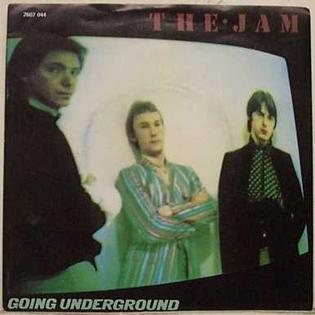
Friday, September 22, 2023
Tom Holland on Pax: War and Peace in Rome's Golden Age

Tuesday, September 19, 2023
The destroyer of worlds
'Ban the Bomb' was a thing in the 1980s. The Greenham Common women protested at
the presence of nuclear missiles at the Berkshire RAF base. A little more
modestly, I braved being told off in school for wearing a CND badge. Those were
the days. The prospect of nuclear oblivion haunted our teenage imaginations. In
their number 1 single, Going Underground, The Jam lamented, ‘You want more money, of course I don't
mind/To buy
nuclear textbooks for atomic crimes.’ Fun, eh?
The man who wrote the ‘nuclear textbook’ was the subject of Christopher Nolan’s
blockbuster movie, Oppenheimer. Richard Oppenheimer brought together some of
the most brilliant scientists of his day to develop nuclear weapons ahead of
Nazi Germany. Winning that arms race was a massive scientific achievement. The
resulting bombs were dropped on Hiroshima and Nagasaki, ending World War II.
Yet Oppenheimer was deeply disturbed by the weapon of mass destruction he had
helped to create, ‘I have become death, the destroyer of worlds’, the scientist
reflected.
You won't find me sporting a CND badge these days. Sadly, nuclear weapons can’t be uninvented, although I certainly hope they will never be used again. Oppenheimer highlights what is best and worst about human beings. We are capable of the most astounding scientific breakthroughs, yet we are also capable of unleashing death and destruction on a massive scale. The Christian faith recognises that human beings are made in the image of God. Hence our exceptional abilities. But the Bible also testifies, ‘All have sinned and fall short of the glory of God’.
Jesus came to deliver us from sin by dying in our place. Christ’s resurrection from the dead brings the hope of a new creation for those who put their trust in him. The film Oppenheimer concludes on an ominous note, with the world teetering on the brink of nuclear oblivion. The Bible ends more hopefully, pointing us to Jesus as the one in whom there is life, the Saviour of the world. In the Book of Revelation John is given to see this glorious vision: ‘I saw a new heaven and a new earth... and death shall be no more, neither shall there be mourning, nor crying, nor pain any more, for the former things have passed away’.
*For September edition of various parish magazines
Monday, September 04, 2023
Rest
Even Jesus needed a break. After a time of extremely busy activity he said to his followers, ‘Come away and rest a while.’ The trouble was that the crowds got wind of where Jesus was heading and followed him there. Cue the feeding of the 5000. So much for that break. At least the intention to stop for a rest was there.
The Lord did not make us to keep going 24/7. We need a good night’s sleep and beyond that, regular breaks from the daily grind. God commanded the people of Israel to rest on the sixth day of the week, or the Sabbath. The Christian day of rest is Sunday, the first day of the week. It was on that day that Jesus rose again from the dead.
It is often during the summer that people take time off work for their main annual holiday. But there is a big difference between rest and leisure. The American novelist Marilynne Robinson reflected, ‘The Sabbath has a way of doing just what it was meant to do, sheltering one day in seven from the demands of making money. Its benefits cannot be commercialised. Leisure, by way of contrast, is highly commercialised. But leisure is seldom more than a bit of time ransomed from habitual stress.’
I’m sure anyone who has braved a busy theme park would agree. You pay through the nose to spend up to an hour queuing for the brief thrill of a rollercoaster ride and then its on to the next thing. Fun, if you like hurtling around while upside down. Restful, not so much.
Yet it’s rest that our troubled souls
and weary bodies long for. Days off and holidays are of some help, but there is
more. We were made for God and it is only in being reconciled to him that we
can find true peace. Jesus died on the cross for our sins that we may be
forgiven and be put right with God. He says to us, ‘Come to me, all who labour and
are heavy laden, and I will give you rest.’
* For the August edition of various local parish magazines

